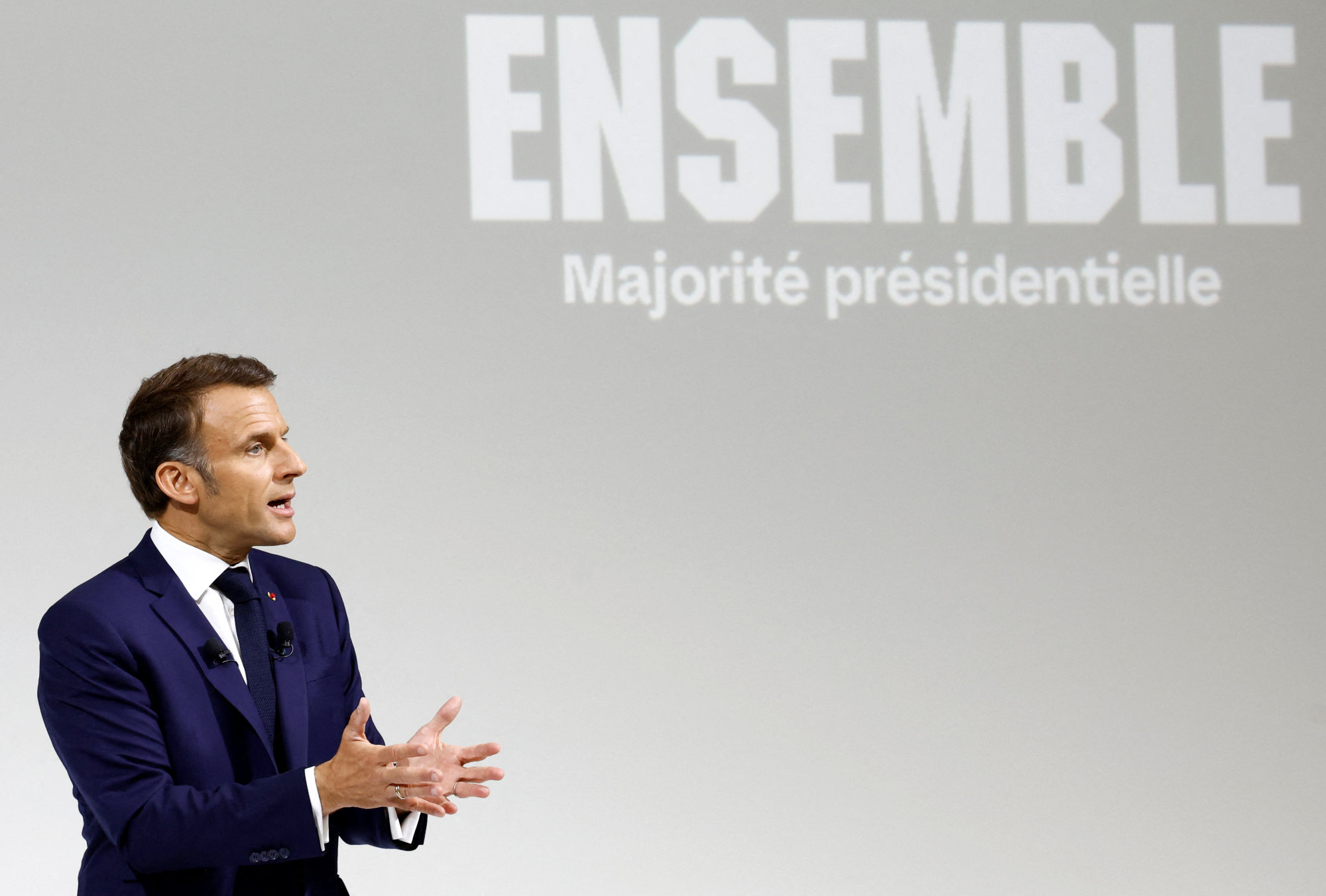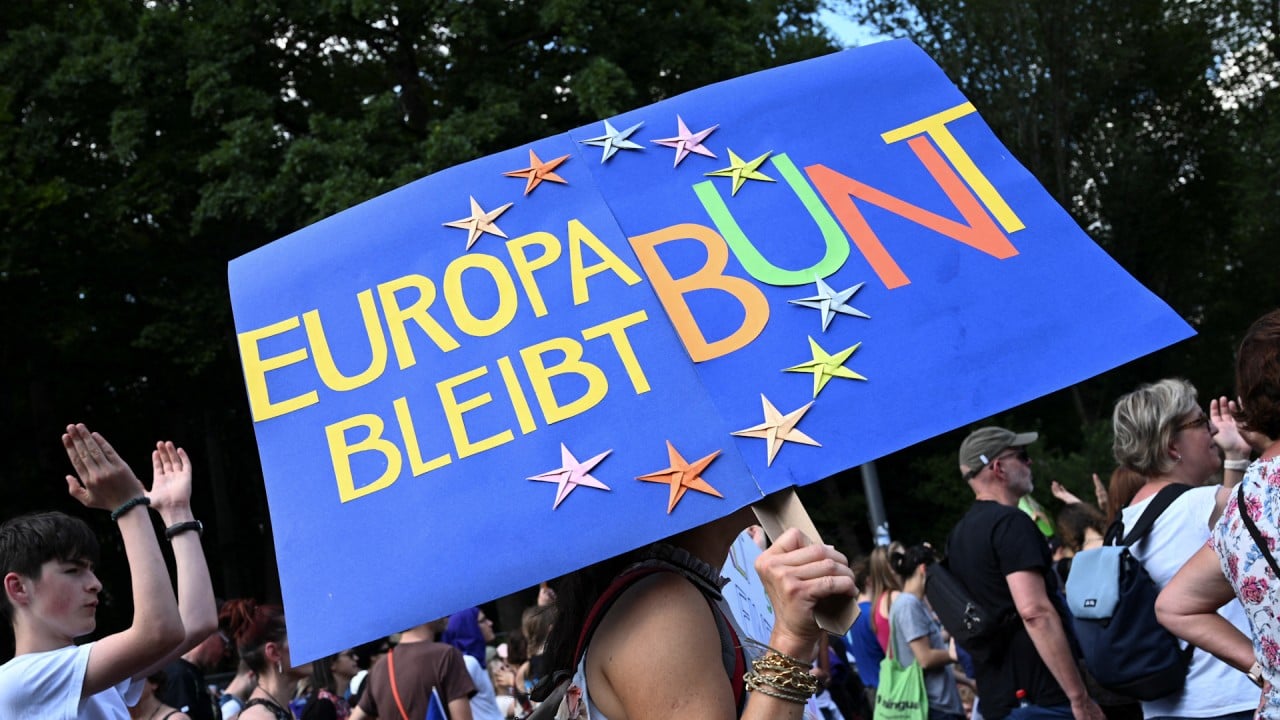Macron, who has three years left of his second presidential term, hopes voters will band together to contain the far-right in national elections in a way they didn’t in European ones.
He said that one reason he had called early legislative elections was to prevent the far-right winning the presidency in 2027 polls when he must stand down.
“I do not want to give the keys to power to the far-right in 2027,” he told reporters.
Macron, a pro-business centrist, said he wants “men and women of goodwill who were able to say ‘no’ to extremes to join together” for the country.
He called on “many of our compatriots and political leaders who do not recognise themselves in the extremist fever” to “build a new project … a coalition to govern, a coalition to act in the service of the French and for the republic”.

He pledged to take a firmer hand in questions of immigration, security and justice, arguing that a far left prone to antisemitism would be too “lax,” while the extreme right would bulldoze France’s constitutional rule of law.
In a dig at the leader of the conservative Republicans party, Macron decried political horse-trading over the last few days, saying “the mask has come off” some parties seeking to forge “unnatural alliances.”
Republicans party chief Eric Ciotti’s appeal for an alliance between his party’s candidates and the RN in a snap parliamentary election has poleaxed the conservative party.
Sunday’s decision to dissolve parliament and send to the polls voters who just expressed their discontent with Macron’s politics was a risky move that could result in the French far-right leading a government for the first time since World War II.
Potential alliances and France’s two-round voting system in national elections make the outcome of the vote highly uncertain.
Opposition parties on the left and right have been scrambling to form alliances and field candidates in the early legislative balloting that will take place on June 30 and July 7.
While sharp differences between parties remain on either side of the political spectrum, prominent figures calling for a united front appear to have one thing in common: They don’t want to cooperate with Macron.
Despite their divisions, left-wing parties agreed late on Monday to form an alliance that includes the Greens, the Socialists, the Communists and the far-left France Unbowed of Jean-Luc Mélenchon.
National Rally leader Marine Le Pen is working to consolidate power on the right in efforts to translate the European triumph into a national win and come closer to claiming power. The far-right party, with a history of racism and xenophobia, is expected to win the most French seats in the European Parliament, potentially as many as 30 of France’s 81.
Reporting by Agence France-Presse, Associated Press, Reuters


